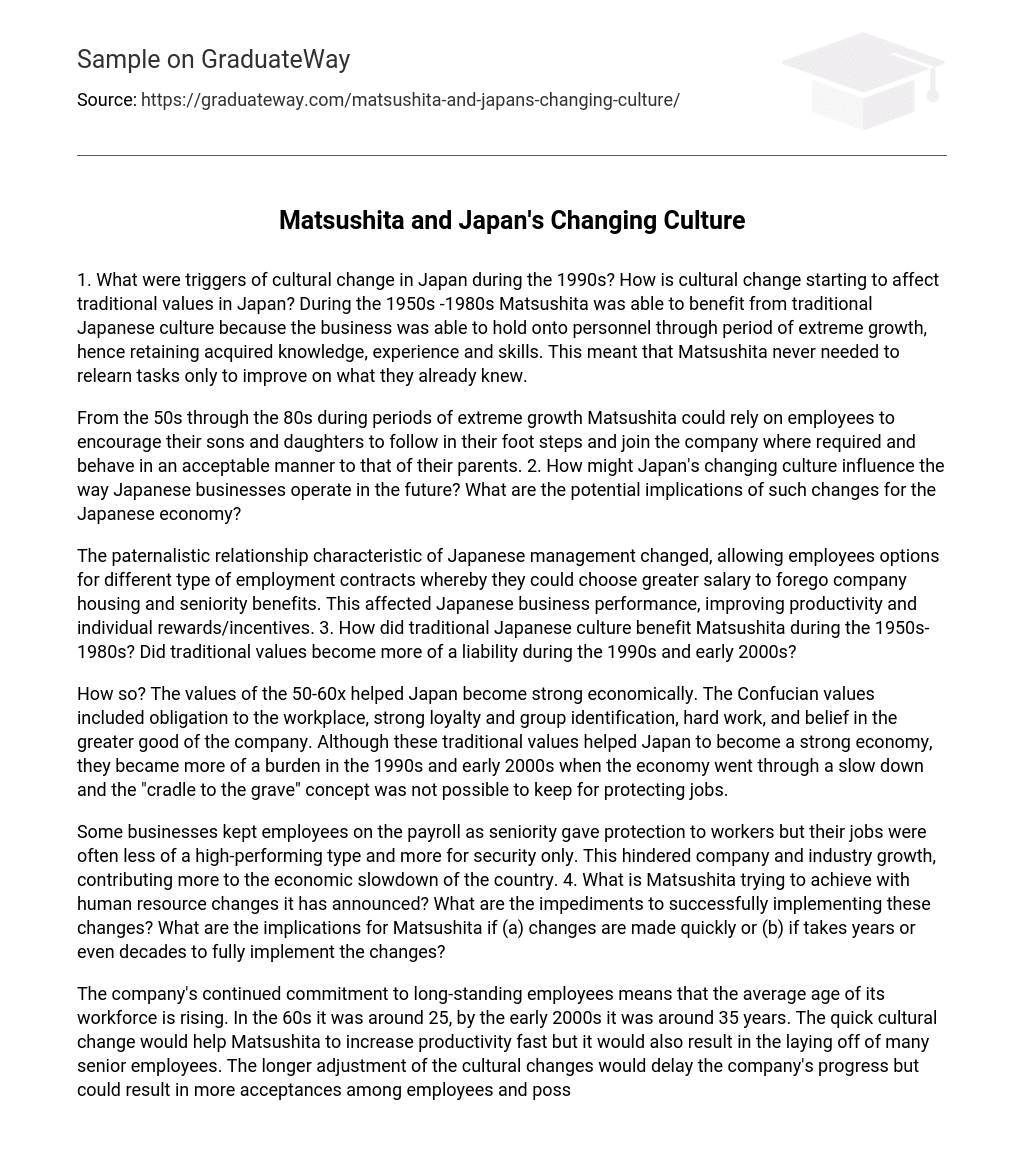1. What were triggers of cultural change in Japan during the 1990s? How is cultural change starting to affect traditional values in Japan? During the 1950s -1980s Matsushita was able to benefit from traditional Japanese culture because the business was able to hold onto personnel through period of extreme growth, hence retaining acquired knowledge, experience and skills. This meant that Matsushita never needed to relearn tasks only to improve on what they already knew.
From the 50s through the 80s during periods of extreme growth Matsushita could rely on employees to encourage their sons and daughters to follow in their foot steps and join the company where required and behave in an acceptable manner to that of their parents. 2. How might Japan’s changing culture influence the way Japanese businesses operate in the future? What are the potential implications of such changes for the Japanese economy?
The paternalistic relationship characteristic of Japanese management changed, allowing employees options for different type of employment contracts whereby they could choose greater salary to forego company housing and seniority benefits. This affected Japanese business performance, improving productivity and individual rewards/incentives. 3. How did traditional Japanese culture benefit Matsushita during the 1950s-1980s? Did traditional values become more of a liability during the 1990s and early 2000s?
How so? The values of the 50-60x helped Japan become strong economically. The Confucian values included obligation to the workplace, strong loyalty and group identification, hard work, and belief in the greater good of the company. Although these traditional values helped Japan to become a strong economy, they became more of a burden in the 1990s and early 2000s when the economy went through a slow down and the “cradle to the grave” concept was not possible to keep for protecting jobs.
Some businesses kept employees on the payroll as seniority gave protection to workers but their jobs were often less of a high-performing type and more for security only. This hindered company and industry growth, contributing more to the economic slowdown of the country. 4. What is Matsushita trying to achieve with human resource changes it has announced? What are the impediments to successfully implementing these changes? What are the implications for Matsushita if (a) changes are made quickly or (b) if takes years or even decades to fully implement the changes?
The company’s continued commitment to long-standing employees means that the average age of its workforce is rising. In the 60s it was around 25, by the early 2000s it was around 35 years. The quick cultural change would help Matsushita to increase productivity fast but it would also result in the laying off of many senior employees. The longer adjustment of the cultural changes would delay the company’s progress but could result in more acceptances among employees and possibly a higher level of morale. 5.
What does the Matsushita case teach you about the relationship between societal culture and business success? Societal values influence business success as these determine employees’ attitudes and their level of commitment for work. Management decisions are impacted by cultural values in terms of priorities and business objectives. Different cultural values result in different business practices. However, cultural values change over time and business leaders must be sensitive to the changes and its implications to business.





